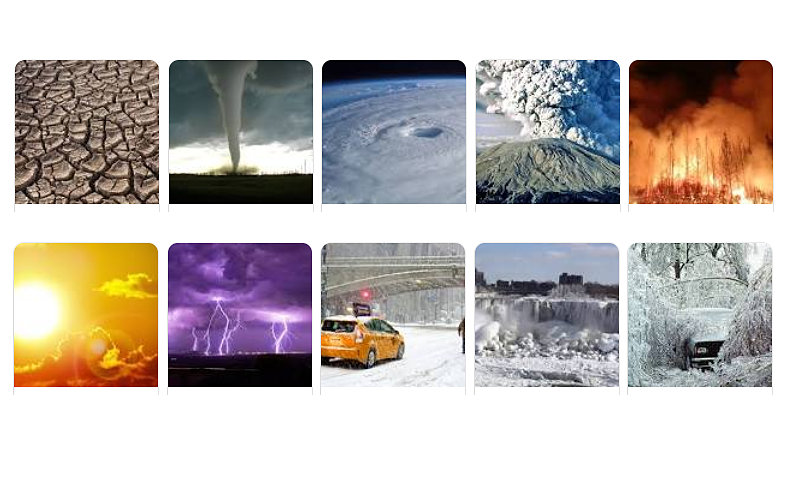Natural Hazards Can Lead To Natural Disasters

Difference between Natural Hazard and Disaster
A natural hazard escalates into a disaster when an extreme event caused harm in significant amounts and overwhelms the capability of people to cope and respond. An example of the distinction between a natural hazard and a disaster is that an earthquake is the hazard which caused the 1906 San Francisco earthquake disaster.
A natural hazard is an extreme event that occurs naturally.
Natural hazards are natural events that threaten lives, property, and other assets.
Often, natural hazards can be predicted. They tend to occur repeatedly in the same geographical locations because they are related to weather patterns or physical characteristics of an area.
List of Natural Hazards
Just to name a few…
- Avalanche
- Drought
- Earthquake
- Extreme Heat
- Flood
- Hurricane and Typhoon
- Landslide
- Power Outage
- Thunderstorms and Lightning
- Tornado
- Tsunami
- Volcano
- Wildfire
- Winter Storm
Preparedness For Natural Disasters
Some of these hazards are region-specific. You know your own region. Therefore you should know your own likely natural hazards.
Stay informed. Make a plan. Know your emergency actions ahead of time. Prepare for evacuations. Or shelter-in-place preparations. Prepare to live on your own, without help for awhile. Protecting your property. Preparing with your kids. Your pets. Prepare for injuries – basic first aid. Build at least a basic emergency kit. Supplies for at least 3 days at a minimum. Also, a portable kit (bug-out). One for in your vehicle, your workplace. Read the archives of this blog from many more ideas.
Fortunately, most of these are short lived. Though damages can really depend on many factors. Impacts can have long lasting results.
Some natural disasters can be forecast quite accurately. On the other hand others can come like a thief in the night.
Scenarios range from mild, moderate, to severe. There’s always a “worst case scenario”. It’s good to prepare for that one…
(Search Modern Survival Blog for tons of preparedness information)
